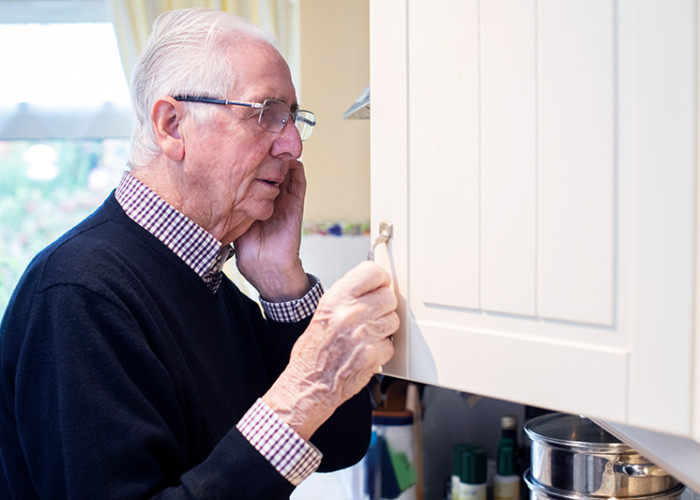Search Results for "alzheimer's"
Understanding Chemo Brain and Its Effects
Chemo brain can last for months or even years after treatment has ended.
Memory lapses, confusion, and difficulty concentrating—these symptoms could easily be attributed to Alzheimer’s, but for cancer survivors, there’s another likely culprit: chemotherapy. Referred to as chemotherapy induced cognitive impairment (CICI) or “chemo brain,” these effects can linger for months or even years after treatment concludes. It’s not exclusive to chemotherapy recipients, either; radiation, surgery, hormonal treatments, and even the cancer itself can contribute to cognitive challenges, complicating effective treatment.
Exploring the Complexity:
Dr. Kevin Liou from the Bendhaim Integrative Medicine Center at Memorial Sloan Kettering Cancer Center emphasizes that cancer-related cognitive impairment is a multifaceted issue with various contributing factors. This complexity means that chemo brain can manifest at any point during or after cancer treatment, presenting symptoms like difficulty multitasking, reading comprehension issues, word-finding … Read More »
The Strategy You Have to Try: Virtual Reality in Dementia Care
Virtual reality in dementia care can be highly effective in improving engagement, communication, and joy.
Imagine for a moment how it could feel to struggle with the cognitive challenges of dementia. The people who are closest to you are now unfamiliar. The words and phrases that would roll off your tongue without a second thought are now just beyond your grasp. In fact, the world as you once knew it has turned completely topsy-turvy, leaving you yearning for a recognizable foothold.
However, one of the kindnesses imparted by Alzheimer’s is the long-term memories that oftentimes remain intact long after short-term memories have disappeared. It’s why connecting older adults with Alzheimer’s to the past is often a remarkably effective way to engage them – through music, movies, photos, and reminiscing. Now we can add a high-tech tool to the … Read More »
How Should You Respond to Aggressive Behaviors in Dementia?
Remember the six R’s when responding to aggressive behaviors in dementia.
Of the many challenging behaviors common in Alzheimer’s, probably the most complicated to manage is aggression. A senior who has always been mild-mannered can abruptly lash out in outbursts that are truly alarming: hitting, cursing, kicking, yelling, biting, or throwing objects. How can you, as a family caregiver, safely help restore a sense of calm when confronted with aggressive behaviors in dementia?
To start with, remind yourself that the aggression is a consequence of the disease. It is not something the older adult can control, and it is not intentional. That said, it must be defused to keep both you and the senior safe from harm.
“The 6 R’s of Managing Difficult Behavior,” developed by Dr. Peter Rabins and Nancy Mace in their book The 36-Hour Day, … Read More »
How to Overcome Sleeping Problems in Dementia
Try these tips to help someone experiencing sleeping problems in dementia get a better night’s rest.
If it seems like a senior with dementia has completely rewritten the rules on when and how to sleep, you’re not dreaming. For reasons that aren’t yet fully understood, sleeping problems in dementia are quite common. Changes to the senior’s circadian rhythm lead to drowsy days and sleepless nights.
The development of the disease is one contributing factor. Damage to brain cells causes increased weakness, making everyday tasks and activities exhausting. Medication side effects from commonly-prescribed dementia treatments can further exacerbate the issue.
Why Is a Good Night’s Sleep Crucial for a Loved One with Alzheimer’s?
Decreased sleep quality in dementia may bring about an increase in restlessness and delusions, and can cause serious safety concerns, such as the potential for an … Read More »
Concerned It Might Be Dementia? Here’s How to Bring It Up to the Doctor.
You may be afraid to talk with the doctor if you’re concerned it might be dementia, but these tips can help.
Distress. Embarrassment. Fear. If you’re concerned it might be dementia, the feelings surrounding a potential diagnosis can force you to keep your suspicions to yourself. An AARP survey peeled away some of the layers of emotion to find the reason – namely, worry over losing independence and becoming a burden to others.
While there is some truth to these worries, there are also some misconceptions fueling them. As an example, roughly 1/2 of the participants, who were adults age 40 and over, believe they’re likely to get dementia as they grow older. The truth is that just over 10% of older adults over age 65 are identified as having Alzheimer’s disease.
Because of this, it’s critical for … Read More »
Not All Alzheimer’s Diagnoses Are the Same!
Alzheimer’s is increasingly common in older adults, but not all Alzheimer’s diagnoses are the same!
For many years, experts have been examining the advancement of Alzheimer’s through one basic model. Yet not all Alzheimer’s diagnoses are the same, presenting with a variety of symptoms and progression rates.
Now, however, a large, new collaborative study between the US, Canada, Sweden, and Korea is revealing some fascinating information to help us more accurately understand and treat Alzheimer’s disease. Rather than one universal, dominant diagnosis of Alzheimer’s, researchers have discovered that there are four unique variants that occur in as many as 18 – 30% of cases. This change in thinking is helping researchers more fully comprehend the variations in the disease from one person to another.
The findings are also significant in that they are allowing specialists to begin to … Read More »
The Surprising Sense of Awareness in End-Stage Dementia and What It Means
Someone you love may experience a heightened sense of awareness in end-stage dementia, which can be both surprising and overwhelming.
Even as confusion and memory loss escalate during the advancement of dementia, there’s a fascinating and pleasant reprieve that often occurs. Formerly termed “terminal lucidity,” it is more commonly known as “paradoxical lucidity.” It signifies an unexpected, short-term regaining of clarity and awareness in end-stage dementia to a nearly pre-dementia frame of mind. During this time period, the effects can consist of nonverbal but emotional connections to a more drastic improvement in cognitive functioning.
For loved ones, it’s a special gift to be cherished. It offers an opportunity for meaningful conversations and reminiscing, and also the mutual sharing of feelings and thoughts, if only for a brief period of time. For medical researchers, it means much more.
Dr. … Read More »
Try These Fun Activities for Someone With Alzheimer’s and Vision Problems
If you’re struggling to come up with engaging activities for someone with Alzheimer’s and vision problems, give these ideas a try!
Finding meaningful, engaging ways to spend each day for a senior loved one with Alzheimer’s can be a challenge. Add in vision impairment, and it might seem overwhelming. Even so, it’s vitally important to ensure every day holds opportunities for purpose and joy – minimizing the level of agitation, frustration, and other difficult emotions and behaviors in dementia. If you’re coming up blank when trying to come up with these kinds of activities for someone with Alzheimer’s and vision problems, we have some suggestions you can try.
Dementia Delusions: How to Respond to False Accusations
Dementia delusions can lead to false accusations, and it’s important to know how to respond.
Dementia delusions can come seemingly out of thin air: you place your loved one’s favorite chicken salad sandwich in front of her – light on the mayo, no onions – something she typically enjoys. But today, she pushes the plate away and will not take a bite, insisting that you’ve poisoned the food.
Or, you’ve provided your loved one with a meaningful activity that links her to a significant time in her past career, sorting paperwork. Out of the blue, she accuses you of tampering with the documents in order to steal money from her banking account.
How can you respond to dementia delusions or hallucinations without further agitating the person? Try these strategies:
Keep a controlled, soothing, understanding tone. It might be instinctive … Read More »
5 Tips for Rummaging Behaviors in Dementia
Try these tips for rummaging behaviors in dementia.
Digging through boxes, cabinets, and closets, taking out assorted items from drawers, and searching repetitively through a number of items may be frustrating for the people providing care for a loved one with Alzheimer’s, but in fact these actions are fulfilling a purpose. Rummaging behaviors in dementia can provide a degree of reassurance, along with the comfort of identifying familiar items and finding purpose and meaning.
The important thing then is not to discourage rummaging, which might lead to agitation, but to more effectively manage this behavior if it becomes disruptive.
How Can You Help Someone with Dementia with Rummaging Behaviors?
These guidelines will help:
Keep rummaging to a controlled area. Assemble bins of items the senior seems especially interested in, such as keys, paperwork, a billfold, tools, gardening equipment, sewing … Read More »

















